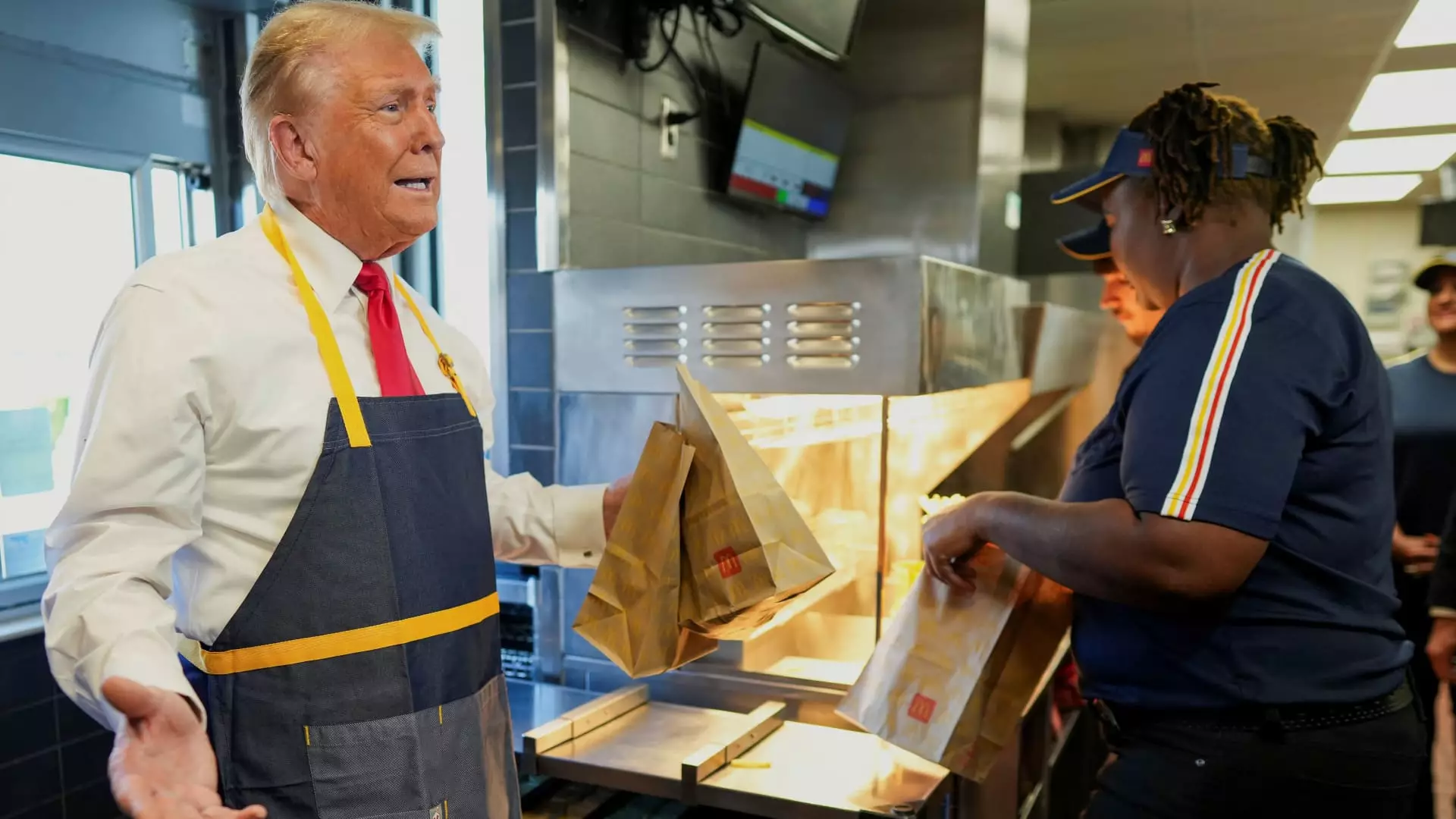In the swirling landscape of American politics, it is not uncommon for brands to find themselves unwittingly dragged into the spotlight. This phenomenon was vividly illustrated when former President Donald Trump paid a visit to a McDonald’s in Feasterville, Pennsylvania, to showcase his fast-food prowess during a brief working shift. This event, while seemingly innocuous, highlighted the delicate balance that corporations like McDonald’s must strike in a politically charged environment. The brand endeavored to affirm its neutrality amid Trump’s presidential campaign activities, underscoring the complex relationship between consumer sentiment, political affiliation, and corporate identity.
McDonald’s issued an internal memo, emphasizing its commitment to remaining apolitical and stressed that the company does not endorse candidates. This represents a tactical choice designed to avoid alienating customers with varying political views. It reflects a broader trend among corporations aiming to sidestep contentious political issues to retain consumer loyalty. With political polarization increasingly influencing purchasing habits, brands like McDonald’s face intense scrutiny over their perceived alliances.
Trump’s public appearances often serve dual purposes: to appeal to his base and to engage in partisan rivalry, as evidenced by his jab at Vice President Kamala Harris concerning her past employment at McDonald’s. While Trump critiques Harris’s claims about her teenage years at the fast-food giant, his rhetoric lacks substantiation, raising ethical questions about accountability in public discourse.
The lack of concrete evidence for Trump’s assertions also brings attention to how narratives are constructed in modern political dialogue. McDonald’s response, highlighting its inability to provide historical employment records, emphasizes the fluid nature of memory and the challenges of verifying personal anecdotes from decades ago. This incident is reflective of a broader cultural commentary on authenticity and truth in political statements—a theme that resonates deeply in contemporary political discussion.
McDonald’s has prided itself on being an “apolitical” entity, which remains a significant focal point in its operations and public relations strategy. The brand’s internal communication highlighted its appreciation for the positive associations both Trump and Harris have for McDonald’s. This careful balancing act exemplifies a corporate strategy targeting inclusivity while simultaneously steering clear of divisive political convictions.
Amid these discussions, franchise owner Derek Giacomantonio’s statements resonate with values of community and accessibility, reinforcing the brand’s foundational principle of serving “everyone.” However, beneath this layer of unity lies the potential for susceptibility to backlash, demonstrating that loyalty can be as volatile as the political climate itself.
Recent surveys indicate a significant shift in public opinion regarding corporate political advocacy. As a reflection of this trend, the Gallup-University of Bentley research showed a decline in the percentage of Americans who believe businesses should take public stands on social issues—falling from 48% to 38%. This evolving sentiment places additional pressure on brands like McDonald’s to carefully calibrate their messaging.
The backlash against rising food prices further complicates McDonald’s current narrative. With accusations linking inflation directly to governmental policies—particularly those associated with the Biden administration—fast food chains can find themselves in a politically charged environment that transcends mere economic factors. McDonald’s has responded to this controversy with transparent communications aimed at clarifying its pricing strategy, a move designed to mitigate consumer concerns amid tight budgets and rising costs.
As the political landscape continues to shift unpredictably, brands like McDonald’s must navigate a path of careful communication and consumer engagement. The intersection of fast food and politics is not merely superficial; it reflects deeper issues of identity, trust, and community values. McDonald’s commitment to remaining neutral amidst political tensions showcases a broader corporate survival strategy, emphasizing the importance of balancing brand integrity against the turbulent backdrops of public opinion and political climate. In navigating this intricate terrain, McDonald’s is not just serving fries; it is also engaging in the delicate art of diplomacy in the public sphere.



Leave a Reply